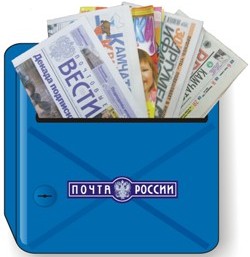For the organization of unmanned transportation on the route Moscow - St. Petersburg, which should start in 2024, the Russian Post would like to receive 1,336 billion rubles of state subsidies.
This amount is contained in the company's request, considered by the working group under the government on the project "Unmanned Logistics Corridor" (BLK), Vedomosti writes .
The company claims that the project can reach payback only by 2035, and before that time the cost of delivery of shipments by unmanned trucks will be higher than in the usual way. The reasons for this situation are the high cost of driverless cars and the inability to additionally save on wages.
A representative of the Russian Post confirmed the amount under discussion, but indicated that the company does not consider the subsidy to be a help to itself. Rather, he pointed out, it will become a form of support for manufacturers and developers of unmanned vehicles.
According to the company's plans, by 2024 it will purchase 25 unmanned trucks, and by 2035 their number will grow to 66 cars. It is planned to purchase models of KAMAZ, Volvo, EvoCargo and others. In 2024, their mileage along the BLK route will be 3.6 million kilometers per year, in order to grow to 12.3 million kilometers by 2035.
Estimates of the Russian Post show that transportation by drones will cost more than conventional transport, by 8-18%. Other companies hoping to integrate into the future market have also come to the unprofitability of the method. So, Globaltruck asks 40 million rubles from the budget to finalize the IT system and another 8.8 million for the purchase of an unmanned truck. "Business Lines" talk about compensation at the rate of 10 rubles per kilometer and benefits for leasing equipment, and the retailer X5 Group - about 30 million rubles only in 2024. Ozon's proposal concerns the establishment of a special tariff for drones.
The working group has formed a unified approach to the size of the subsidy — 10 percent of the average market cost of transportation on the M11 highway (Moscow — St. Petersburg), that is, about 6 rubles per kilometer. Such a proposal has been submitted to the Government. The interlocutor of the publication in the government recalled that subsidies are not provided in the current version of the project, but if they become mandatory conditions for the launch of the project, the Cabinet of Ministers will consider the issue.
Earlier it became known that the Russian Post intends to use heavy drones to deliver goods to remote areas of the country. The size of the cars is such, First Deputy Prime Minister Andrei Belousov explained in August, that they will have to build runways for them.

